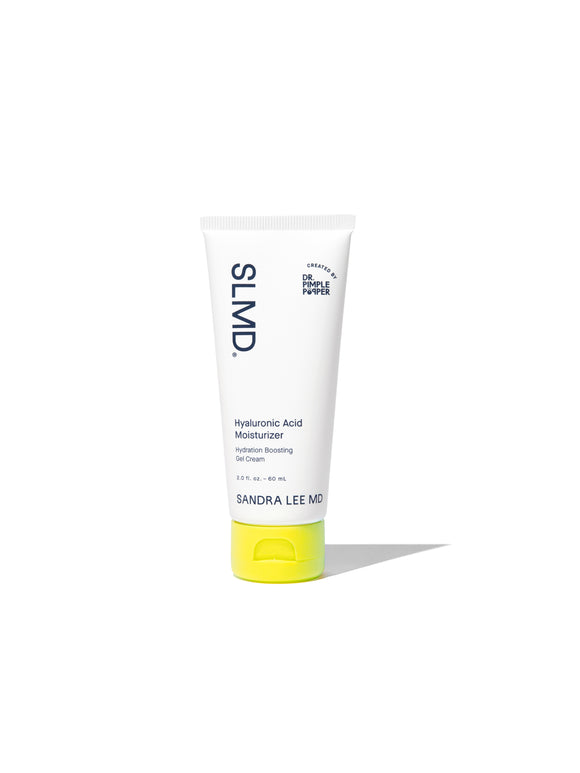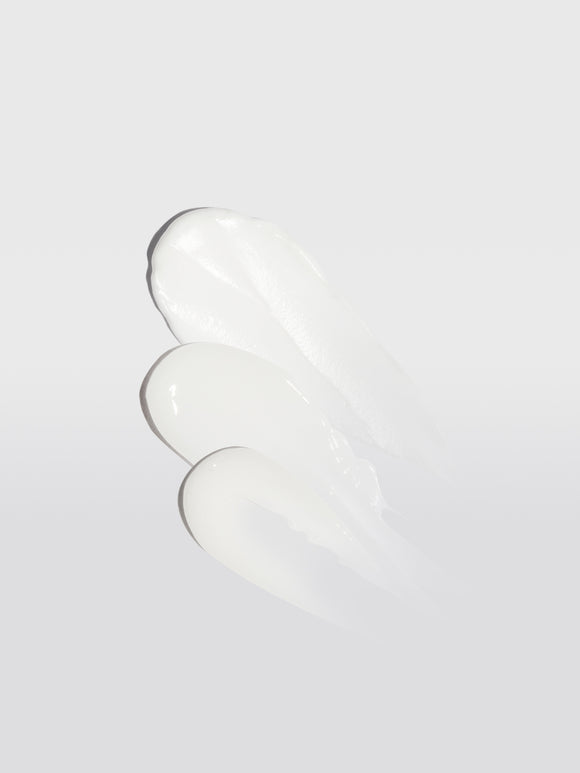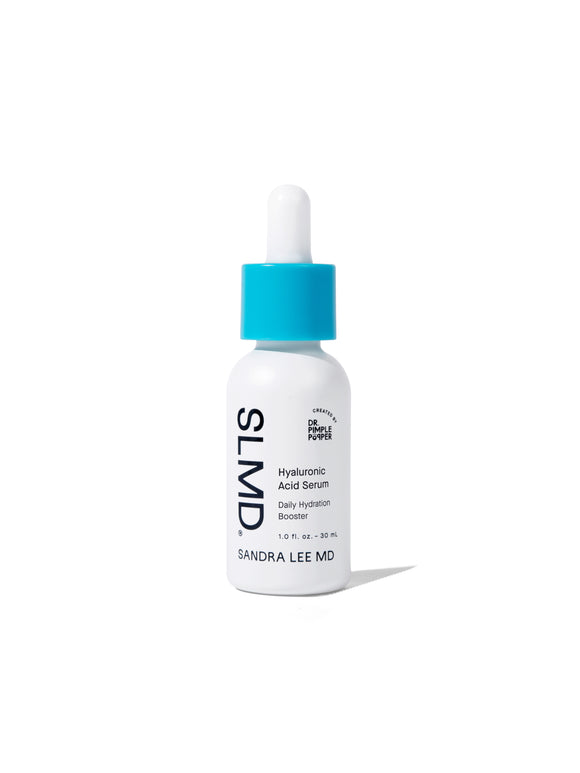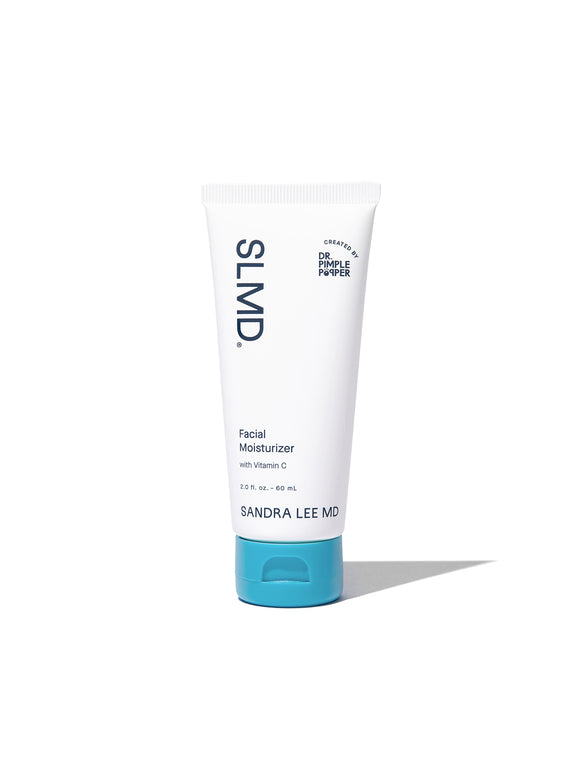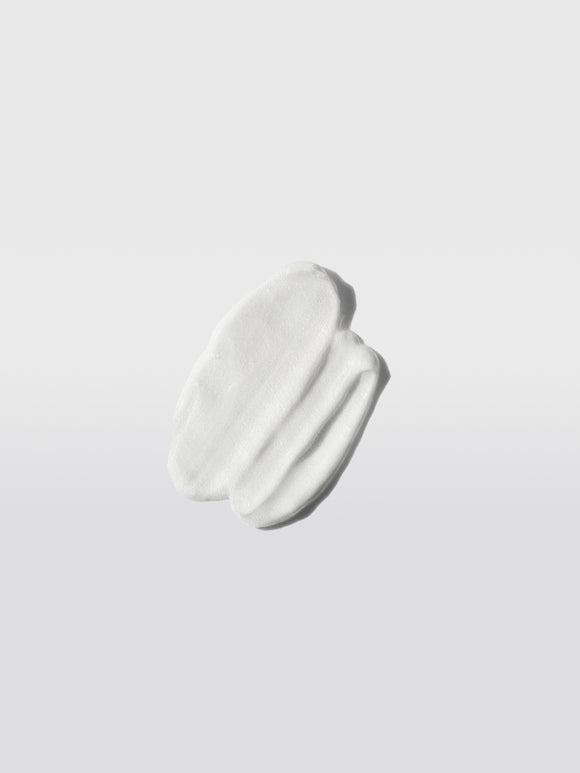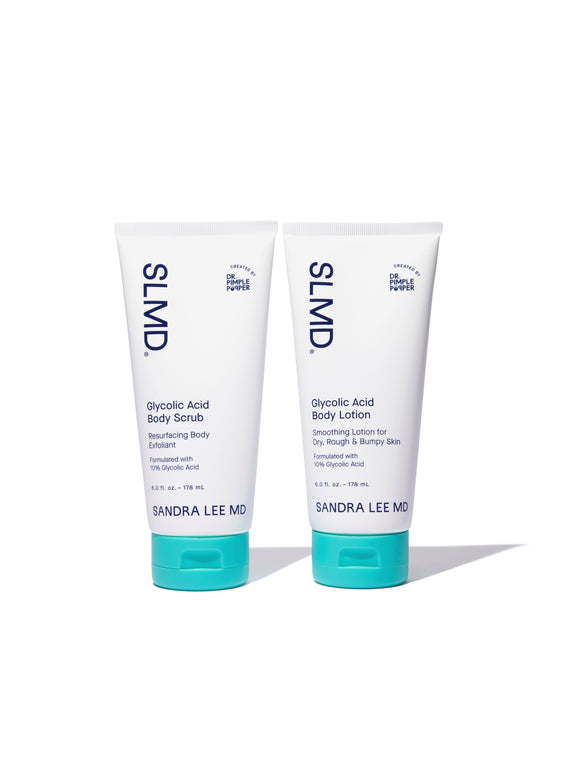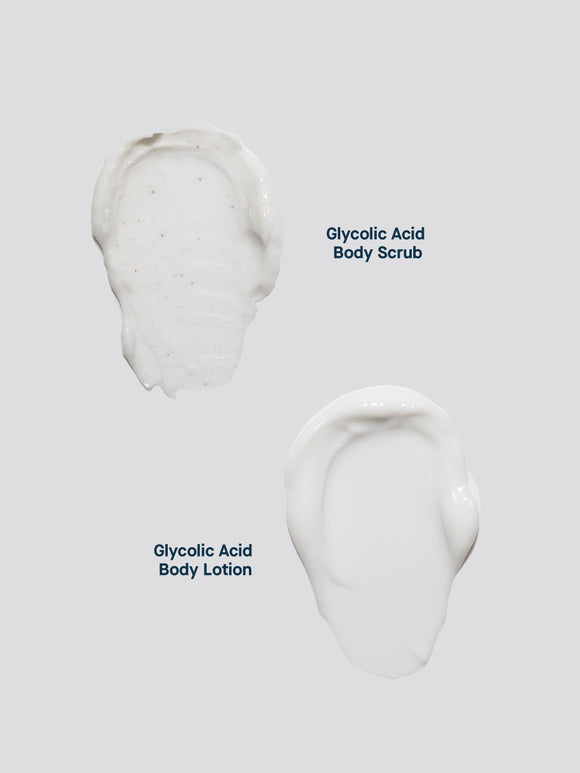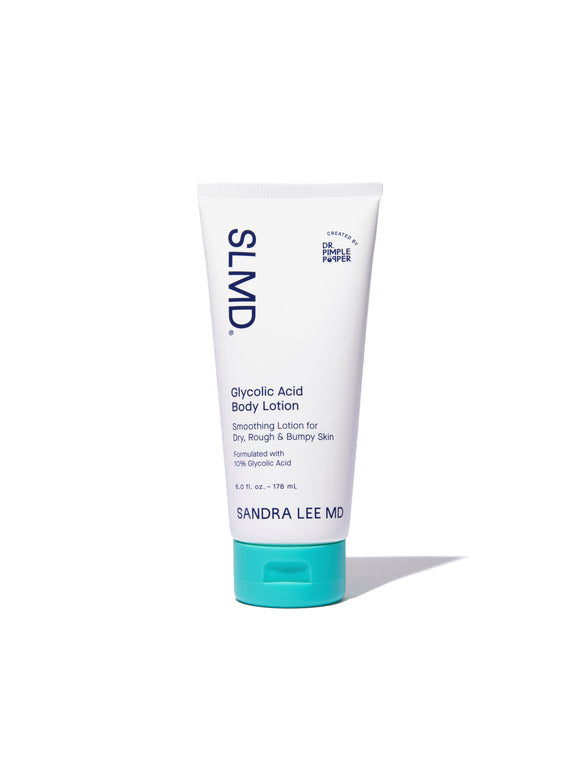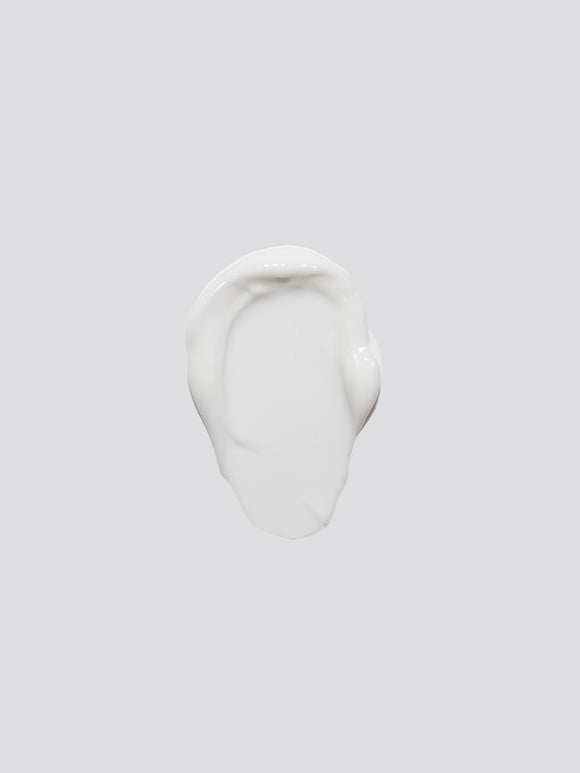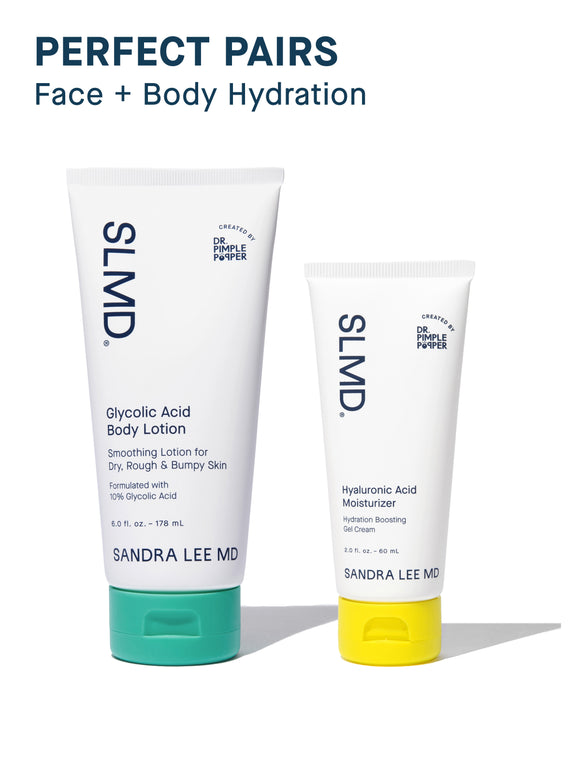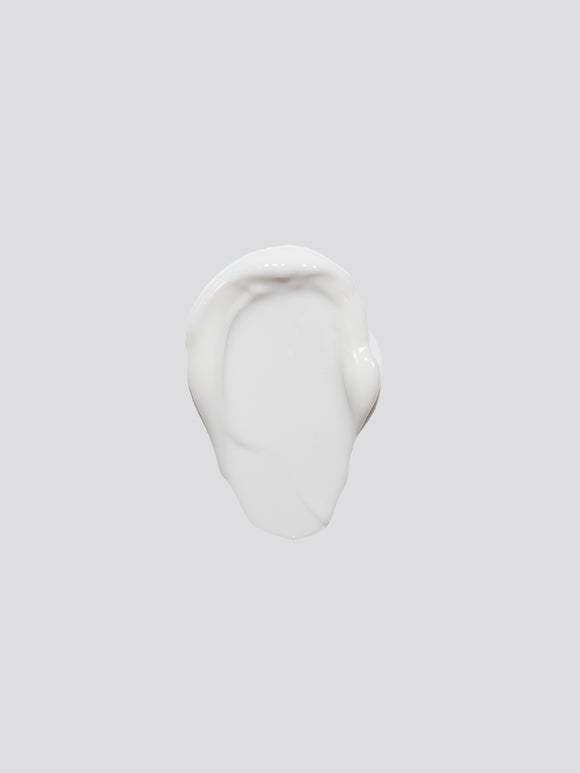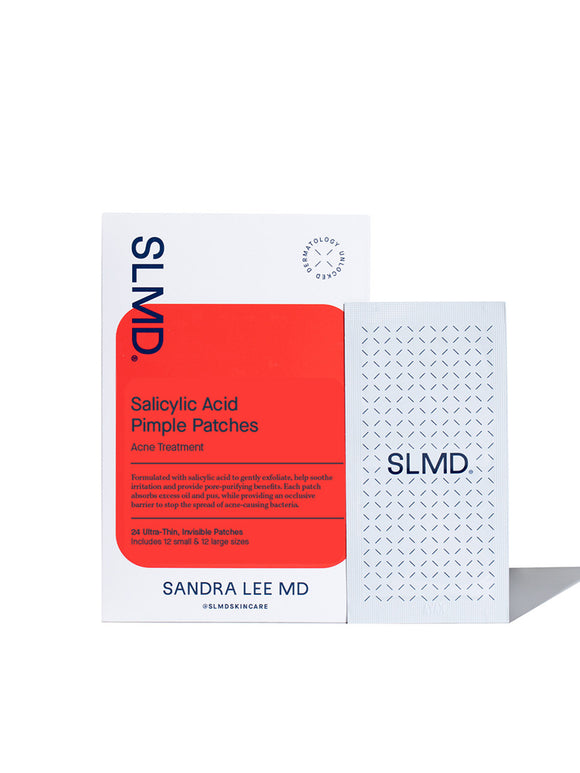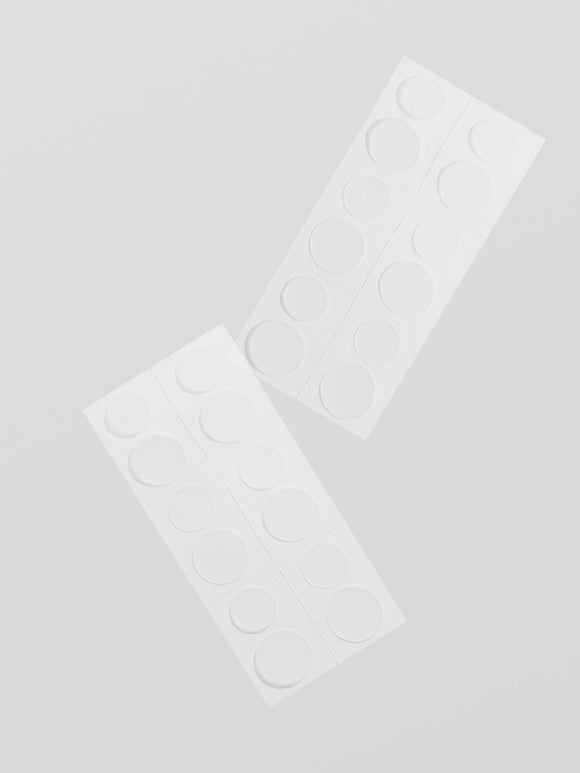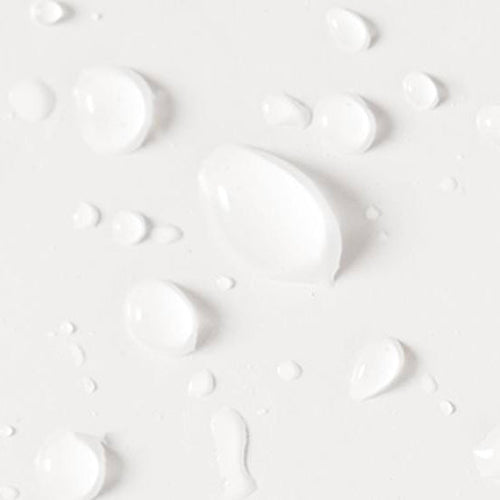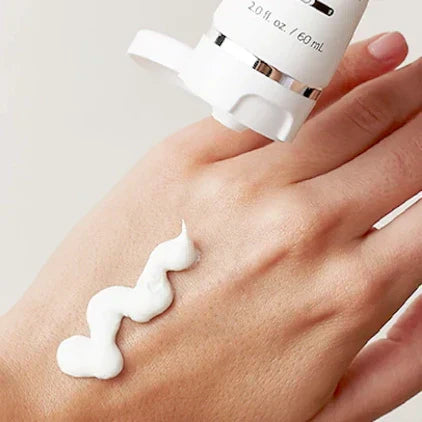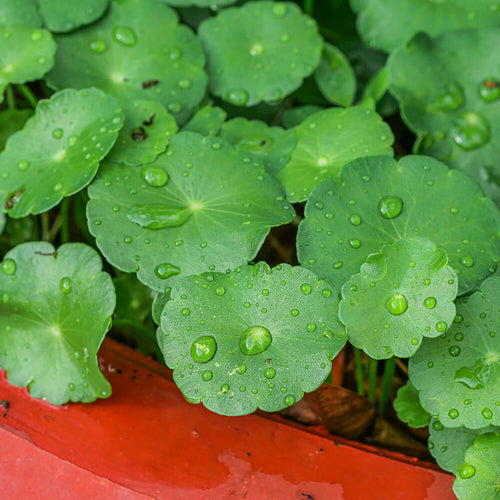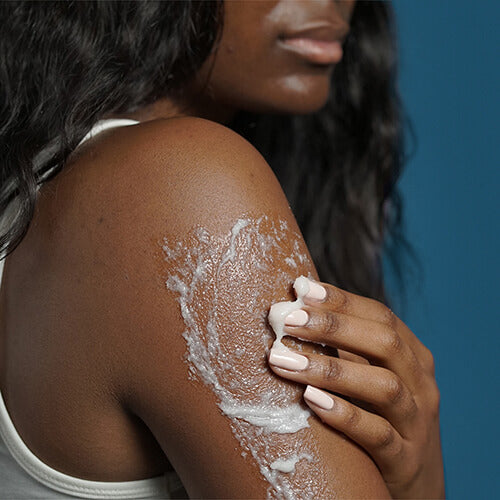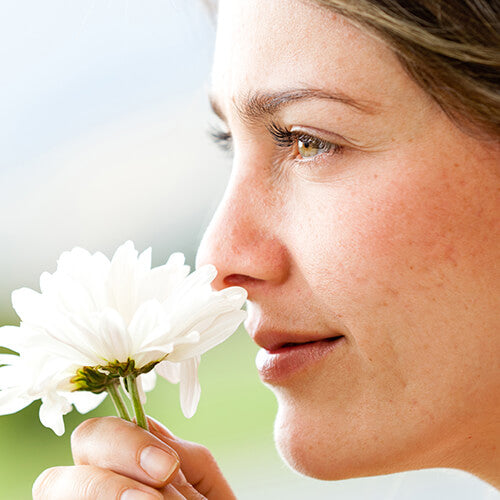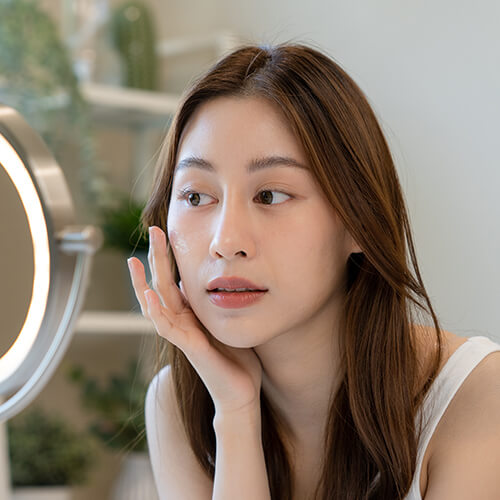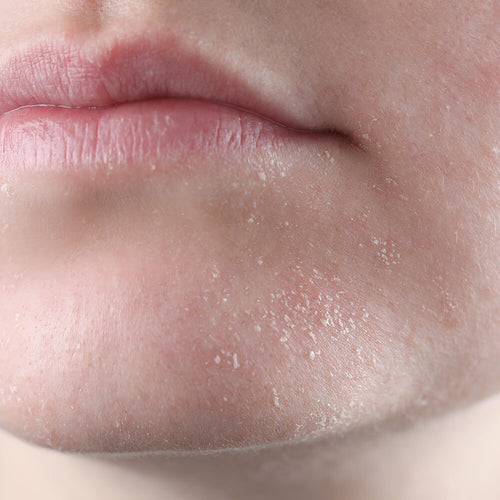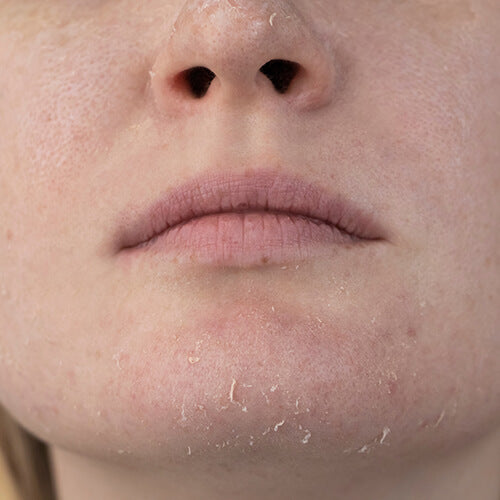
Dr. Pimple Popper’s Winter Skincare Routine for Barrier Repair
These cold-weather tips can keep your skin glowing all season long.
Published:
3 minute read
When the winter chill sets in, your skin needs extra care and attention. Cold, dry air can cause dryness, peeling and irritation. These are all signs that your skin barrier needs support. Dermatologist and SLMD Skincare founder Sandra Lee, MD (aka Dr. Pimple Popper) explains how winter affects your skin health and how to keep skin hydrated and glowing all season.
Fast facts: winter skin care routine
- Cold winter air strips moisture and stresses the skin barrier.
- Indoor heat can worsen dryness, flaking and irritation.
- Quick fixes won’t work — hydration strategy matters.
- Dermatologist-approved routines restore comfort and balance.
What cold weather does to your skin
Winter’s low humidity and heated indoor air pull moisture from the surface, leaving skin dull and tight. “The air inside is often drier than outside — we have the heater on and the air is being recirculated,” says Dr. Lee. “Drier air leads to drier skin.”
Here’s what’s happening:
- Moisture loss: Cold air and indoor heat dehydrate the skin, weakening its barrier.
- Sensitivity: A compromised barrier allows irritants to penetrate more easily, causing redness and discomfort.
- Dullness: Lack of natural moisture and slower cell turnover leave skin looking flat and uneven.
People with conditions like eczema or rosacea may find their skin barrier even more vulnerable during winter. A weakened barrier can increase sensitivity and redness, making a targeted moisturizing routine essential if you want to keep your skin moisturized year-round.
Dr. Pimple Popper's Skin Barrier Protectors
Dr. Pimple Popper’s top winter skin hacks
Upgrade your moisturizer
Choose a formula that combines humectants (like hyaluronic acid and glycerin) with emollients and occlusives (squalane, colloidal oatmeal, ceramides). This mix draws water into the skin and then helps seal it in — crucial for winter barrier repair and deep hydration.
“If your moisturizer feels thick but your skin still feels tight, it’s probably missing humectants,” says Dr. Lee. “Layer lighter products first, then something richer on top to keep that moisture in.”
Try: SLMD Facial Moisturizer with Vitamin C, Hyaluronic Acid Moisturizer
Moisturize right after you shower
“A lot of people make the mistake of completely drying off before applying lotion, which dries out and irritates skin,” says Dr. Lee. “Apply your moisturizer while you’re still damp to lock in that moisture right away.”
Using lukewarm water instead of hot also helps protect your natural lipids and can reduce itchy winter skin on the body.
Try: SLMD Glycolic Acid Body Lotion, Body Smoothing System
Layer for deep hydration
Layering lightweight products allows each one to absorb properly and build lasting hydration. Start with a hydrating serum, follow with a lotion, and finish with a cream or oil if your skin feels dry.
Dr. Pimple Popper tip: "Treat your winter routine like getting dressed for the cold — think thin, hydrating layers first, then a richer 'coat' on top to protect your skin."
Try: SLMD Hyaluronic Acid Moisturizer, Hyaluronic Acid Serum
Use a humidifier
Indoor heating can strip moisture from the air, leaving skin dry and tight. A humidifier helps rebalance humidity and support the skin barrier, especially on your face, hands and body. Clean the tank and filters regularly so you’re not circulating irritants or buildup.
Make healthy choices for radiant skin
Winter often disrupts sleep, movement and stress levels — and that shows up on your skin. If you’re feeling the winter blues, stress hormones can trigger inflammation and make habits like skin picking harder to control.
“Touching or picking at your skin can definitely make irritation worse,” notes Dr. Lee. To help break the cycle, keep your routine gentle and consistent, use a spot treatment when needed, and take conscious breaks from the mirror.
FAQ: winter skincare, barrier repair and hydration
Q: How long does it take to repair the skin barrier during winter?
A: Skin barrier repair typically takes about two to four weeks with consistent winter skincare. Use gentle cleansers and skin barrier repair moisturizers containing ceramides and squalane, and avoid over-exfoliating while your skin is recovering.
Q: What is the best nighttime serum for aging skin in cold weather?
A: In dry, cold conditions, choose a hydrating nighttime serum with hyaluronic acid and antioxidants to help plump and smooth aging skin. Always follow with a moisturizer for cold weather to lock in moisture and prevent overnight water loss.

Dr. Lee's Last Word
Keeping your skin healthy during the wintertime doesn’t have to be complicated. Stick to your routine, make sure your skin is well moisturized, and don’t take super hot showers that damage your skin barrier.



